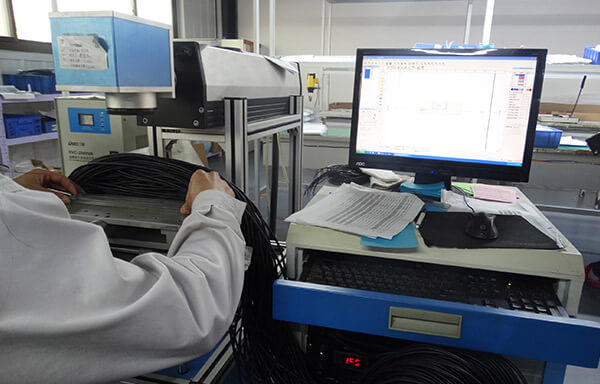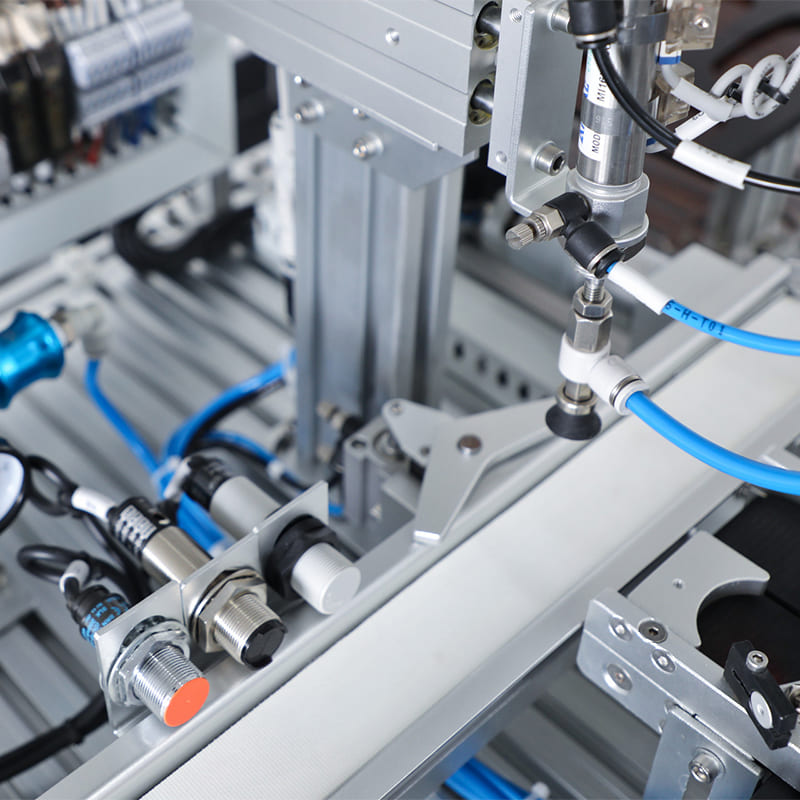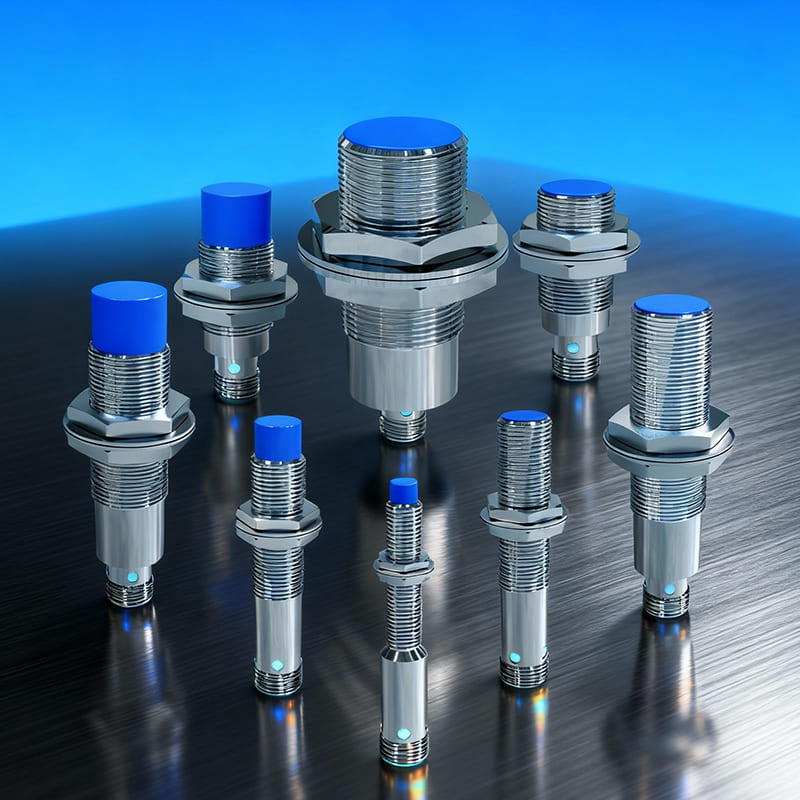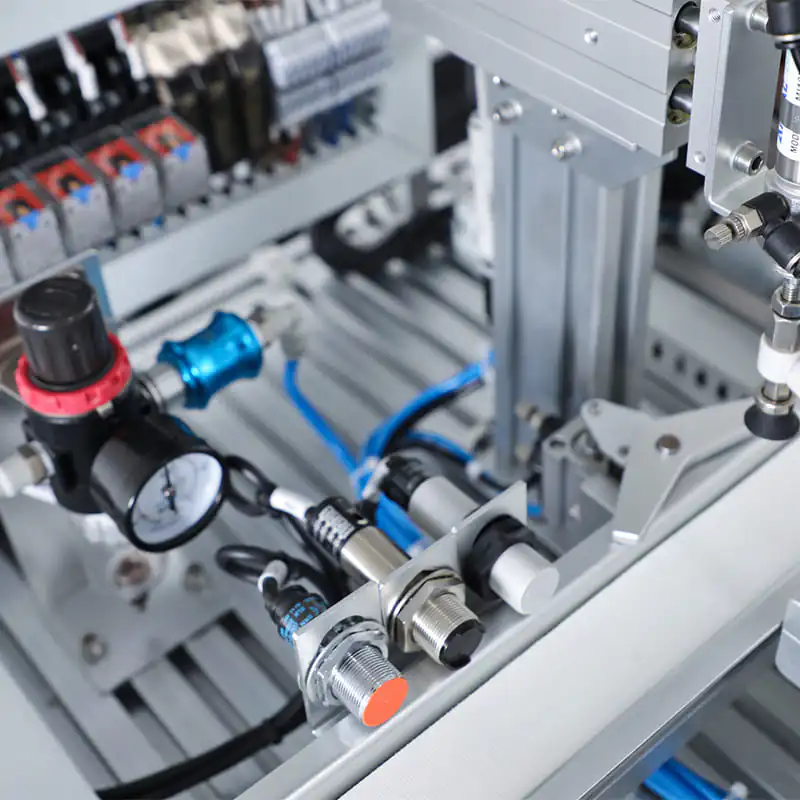Inductive proximity sensors can precisely detect various metals such as aluminum
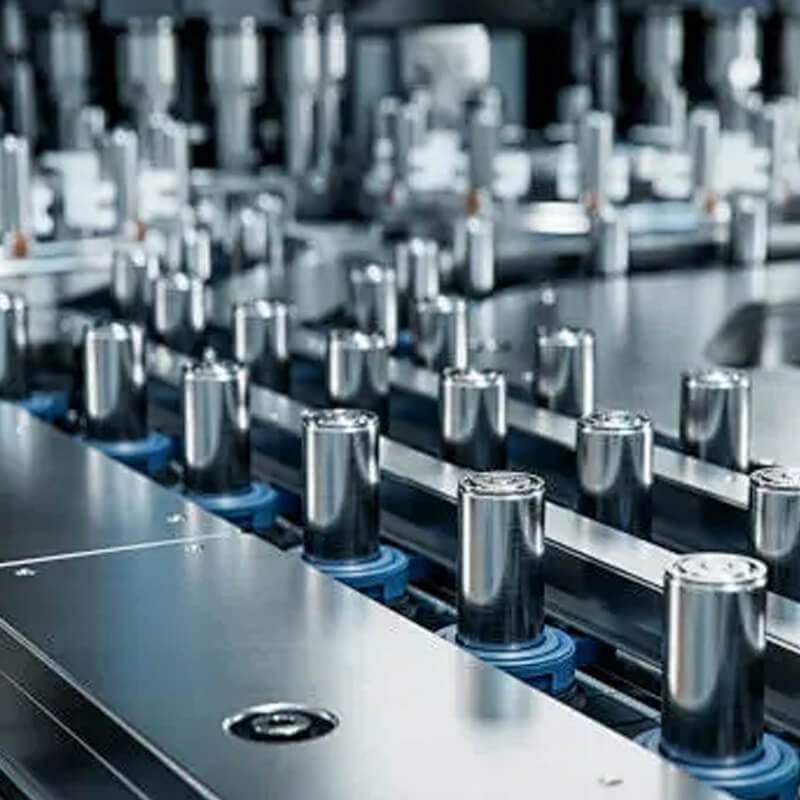
In modern industrial automation, inductive proximity sensors have become the preferred technology for metal detection due to their non-contact detection advantages. Some might wonder, can inductive proximity sensors detect aluminum? The answer is affirmative; inductive proximity sensors can precisely detect a variety of metals, including aluminum and iron.
This article will delve into the performance of inductive proximity sensors in detecting different metal objects and provide professional advice for your industrial automation solutions.
How Inductive Proximity Sensors Work:
Inductive proximity sensors function based on the response of metals to a high-frequency oscillating magnetic field.They detect the presence of metals by measuring changes in the impedance of the coil.
When a metal object approaches the sensor’s sensing range, eddy currents are induced, causing a change in the magnetic flux within the sensor’s coil, which in turn affects the coil’s impedance. This change in impedance is detected by the sensor and converted into an electrical signal output.
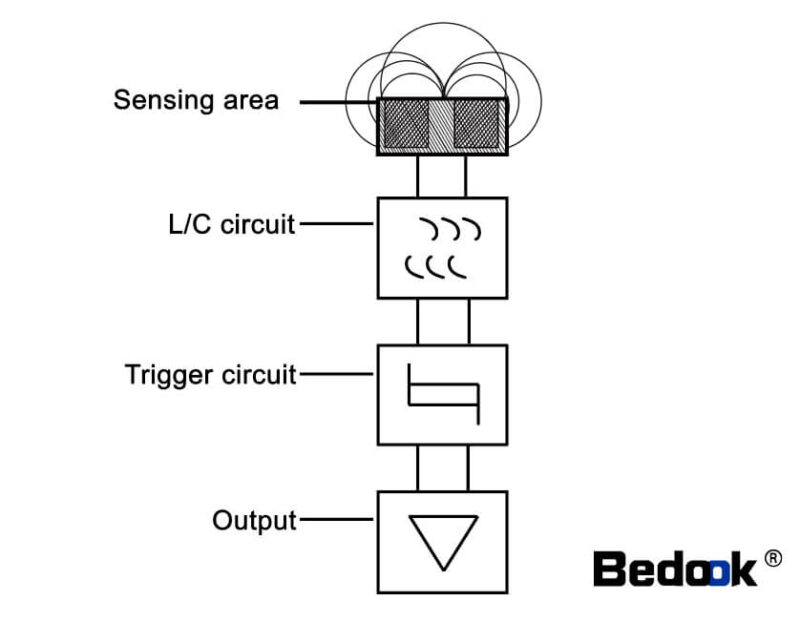
Inductive proximity sensor working principle diagram
Features of Inductive Proximity Sensors:
- Fast response, high sensitivity
- Capable of detecting small metal objects
- Not limited by color, transparency, material, etc.
- Can be used in various situations
However, their disadvantage is that they can only detect metal objects and not non-metal objects.
Detection Capabilities for Various Metal Objects:
Inductive proximity sensors can precisely detect a variety of metals, including aluminum, iron, and more.Due to the different conductivity and magnetic properties of different metals, the detection effect and distance will vary.
For example, iron has a higher magnetic permeability and conductivity, resulting in a relatively longer detection distance;While aluminum and copper, although also highly conductive, are non-ferromagnetic metals, so the detection distance may be slightly reduced.
Bedook®’s inductive proximity sensors can precisely detect various metals, including aluminum, iron, and more, and provide customized solutions based on various application scenarios.
| Correction Factor: | |
| Non-ferrous metal | Factor |
| Fe 360 | 1 |
| Aluminum | 0.35-0.45 |
| Brass | 0.35-0.5 |
| Copper | 0.25-0.45 |
| Stainless Steel | 0.6-1.0 |
| Cast Iron | 0.93-1.05 |
| Nickel | 0.65-0.75 |
Advantages of Choosing Bedook® Products:
Bedook® offers a variety of models of inductive proximity sensors to meet various metal detection needs.
Their products strictly comply with international standards, have been tested for EMC, IP protection level, vibration, shock, and temperature extremes, ensuring that product quality and performance are safe and reliable, and are widely used in various industries.
Whether you are looking for efficient industrial solutions or require technical support, Bedook® can meet your needs and is your ideal partner in the field of sensors.
Explore Bedook: Your Trusted Sensor Manufacturer
At Bedook, we specialize in designing, developing, and manufacturing a comprehensive range of proximity sensors and switches. Our extensive product lineup includes:
- Inductive Proximity Sensors
- Capacitive Proximity Sensors
- Photoelectric Sensors
- Ultrasonic Sensors
- Solid State Relays
- Various Accessories
With over 10,000 detailed product variations and a robust R&D team, we take pride in our ability to meet your unique requirements with tailored solutions and reliable performance.
Whether you’re seeking off-the-shelf products or customized designs, Bedook offers the expertise and production capacity to ensure your satisfaction.
Get in Touch Today!
We value your interest in our products and warmly encourage you to send us an inquiry. Let us help you find the perfect sensor solution for your application.
Thank you for considering Bedook—your trusted partner in innovation and quality manufacturing. We look forward to collaborating with you!

